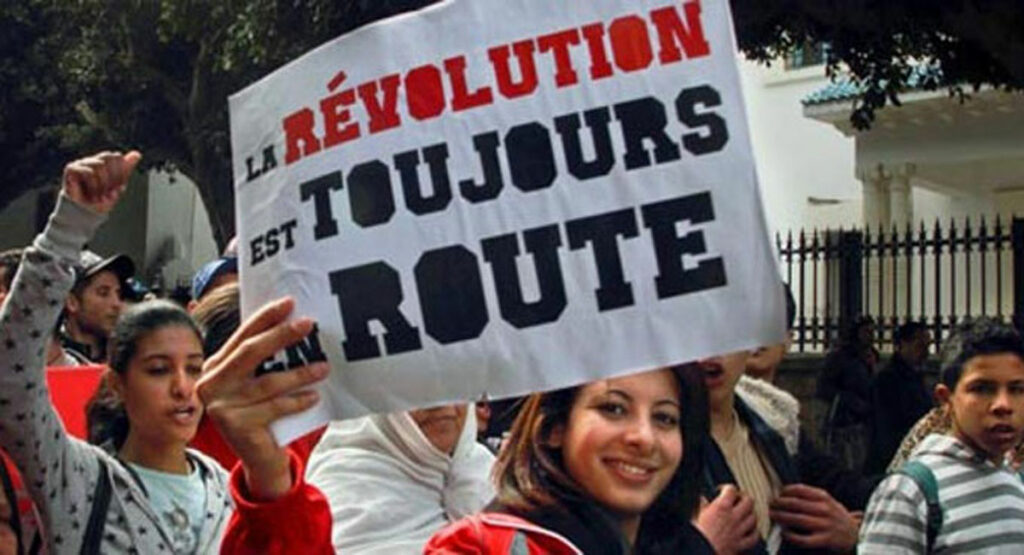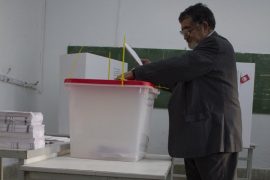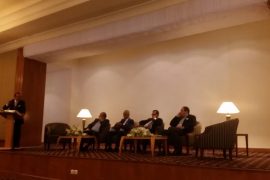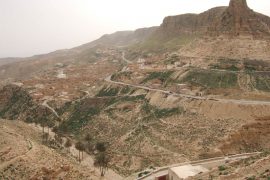In less than a week, police stations were attacked, “Nidaa tounes” activists were assaulted, the dinar was devalued by 10%, strategic concessions were given to Qatar in the greatest opacity, The constitution given to the media has been heavily criticized by experts and politicians who predict a constitution that “would lead the country towards a dictatorship worse than that of” Ben Ali “as stated Yadh Ben Achour in front of La Presse.
Basically, all the ingredients are gathered for a re-entry under the best auspices with as a bonus strikes expected in several sectors of activity and a parliamentary takeover that looks promising in the light of the files that await him: choice of the future political system And adoption of the voting system, creations of independent and transparent structures including that of elections and so on …
But does Tunisia despise it? No, civil society is resisting.
Faced with the harassment of the government and the stigmatization of the media, the Association of Tunisian Journalists resisted. It signed a petition with more than 1,000 signatures to refuse any partisan interference. On the arts side, the comedian Lotfi Abdelli managed last weekend to ensure his controversial shows despite the squabble caused by Salafists and ensuring his own safety. Tunisian artists have launched a campaign of solidarity in force and ingenuity to denounce the indictment of the artist Nadia Jelassi arrested for the case of “El Abdeliya”. The women mobilized on 13 August to challenge the status of “complementary” that the majority wanted to impose on them within the Constituent Assembly and the largest constitutionalists of the country have delivered their criticisms when a draft constitution.
Since the revolution, there have been expressions that often return as “Tunisia, a country devastated by the revolution”, “a country mourned by the Arab Spring”, “a country where the Islamist winter is blowing”, “a country which Shattered against the wall “,” the return of the dictatorship “,” Tunisia: the collapse “,” Where is Tunisia? »…
Are these images false? Are they a reflection of a truth or an apprehension? Is it true that Tunisian society, deeply affected by a brutal impoverishment as much as by a questioning of its societal model is sinking into hell? A country where all the hopes seem to disappear and which already signs the failure of its democratic transition?
As much as it is indisputable that the country is facing a difficult democratic transition on a background of serious economic crisis but to assert that it is only ruins and offers only signs of “devastation” is exaggerated . Tunisia resists. Dynamic and alert, it discovers its resistance and militants, structures its action, sharpens its strategies and fights.
Turning away from the promises that brought him to power, Ennahdha assisted by the CPR and Ettakatol are confronting a society that defends its gains. By seeking to impose by force an archaic and retrograde view of society, they reap the anger that is rumbling again in the regions and are measured against the resistance of the Tunisian elites.
The Troika in power, fragile by resignations and lack of experience coupled with a bad communication, no longer succeeds in hiding its inability to assume its task. Little confident, Ennahdha riddled with internal struggles persists in putting his hand on the wheels of the State under the critical eye of NGOs and associations that denounce the overruns and abuses of power. Pillar of the state, the Tunisian administration resists firmly. To date, more than 1,300 new appointments have been registered by the Hamadi Jebali government.
On the Bardo side, wearied by the opacity that reigns in the Assembly, several associations and citizens filed a complaint against the palace demanding the application of transparency and the publication of parliamentary activities. The anger against the elected representatives of the Constituent Assembly rumbles as the 23 October approaches, with no electoral calendar, no independent body for elections, the judiciary, the media and transitional justice. And of course no Constitution …
Meanwhile, attacks on individual freedoms, political parties and their militants and entire sections of Tunisian society have become commonplace. They began gradually and accelerated vertiginously through isolated and violent acts of fanatics but unfortunately soon found echoes in the political discourse of government officials.
To quote only Rafik Bouchleka, the latter declared that “the transitional government would remain in power for a long time”. Very strange for a Minister of Diplomacy. It is to be wondered if he would rather be minister of prophecy!
And these are of course the shocking statements of Hamadi Jebali’s political affairs officer, Lotfi Zitouni, who acts as an elephant in a porcelain store, which sounds the death knell of a revanchist Islamist order that is indeed on the march. A minister who leaves the ranks of his party disowns his own government and attacks all those who stand before him. It lowers political institutions and devalues political speech. Worse still, it devalues by its hateful behavior much of the democratic transition.
The rampant Islamization also becomes much more frank and accelerates dangerously. Imams preach to Islamize the disbelievers by speaking of Tunisians like them. They evoke a Jihad and help to divide the citizens. “All that the ruling party has managed to do is to turn our religion into a real social disease. Tunisians have lived religion as an element of liberation, social cohesion, spirituality. They live it today as a cancer that devours the entire social body and risks throwing it into underdevelopment and widespread regression. If this continues, Tunisia will not simply be downgraded by the rating agencies, the good God himself will not want any more, “summed up Yadh Ben Achour.
Is Rached Ghanouchi aware that the threat of “living together” is now a real threat to the country threatening the unity of citizens? Taking the same order as these imams and specifying that those who attacked the sieges of Ennahdha attacked the houses of god, it leads the country to its loss.
The member Selma Baccar pointed out as the country’s big boss said his party was “the backbone of political life in Tunisia” and that his party “was going to stay in power for a long time.” Had sheikh become a diviner? In any case, this does not bode well. “Mass” seems said and the establishment of independent and transparent bodies is vital, especially in view of the lack of dialogue and differences between the various political actors of the country. Especially given the weakness of the other political parties that according to the experts remain shyly present on the ground.
Though political life is becoming increasingly dense, Ennahdha continues to overestimate its power. This would signal the beginning of the end of a party that has promised too much to a population that was waiting so much!
Today, Tunisians think that nothing has changed. They hate the Salafists for their arrogance and violence and are disappointed by the exercise of Ennahdha’s power. Cities are dirtier, prices are rising, unemployment is growing, drugs and insecurity endure, parallel trade and corruption still have a bright future.
Is it the fault of this government alone? Not sure. But it proved incompetent to give hope and create a real dynamic of work and solidarity with serious reforms. Is it the fault of the Constituent Assembly? Most likely, by handing over its legitimacy to an executive barely able to dispatch current affairs. Is it the fault of Ennahdha? Surely she believed herself incontestable and legitimate and did not expect so many resistances in addition to her lack of vision.
For the moment all this is a mess but not a fatality.
Amel Djait
{mainvote}













